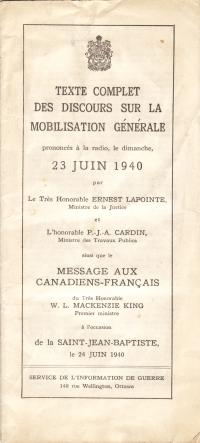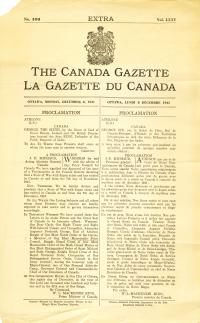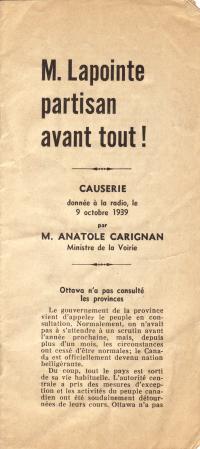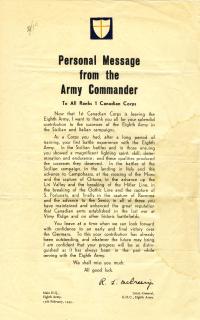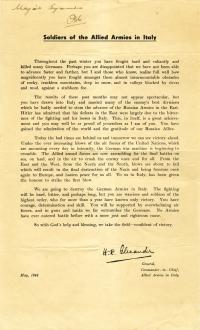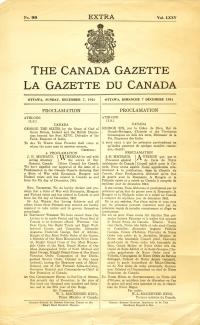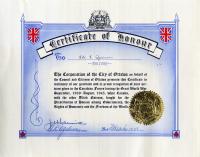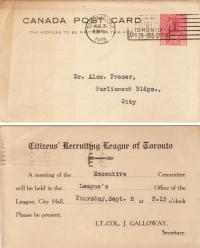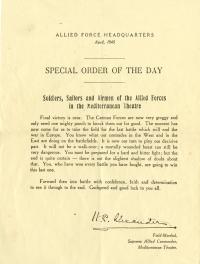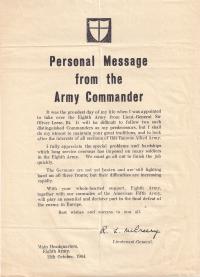Fighting
Mackenzie King's manpower policy
The federal government of prime minister Mackenzie King used St Jean Baptiste Day, an important holiday in French Canada, as the occasion to clarify its manpower policy for the benefit of French Canadians.
At war with Japan
After the surprise Japanese attack on the U.S. naval base at Pearl Harbor, Hawaii, Canada lost no time in declaring war on Japan.
Politics in wartime
In this radio broadcast, Union Nationale provincial cabinet minister Anatole Carignan criticized federal cabinet minister Ernest Lapointe for ignoring the wishes of Quebec. Carignan was defeated in the 1939 Quebec provincial election.
1 Canadian Corps leaves Italy
Early in 1945, Canadian units were withdrawn from the campaign in Italy so they could join the Canadian divisions fighting in north-west Europe. On their departure, the army commander thanked them for their work since the invasion of Sicily in July 1943.
The advance through Italy
The messages from Generals Alexander and Leese were sent to the troops at the end of a period of bitter fighting in Italy. In the weeks that followed, Allied troops (with the Canadians in reserve) would continue the advance, eventually capturing Rome in June 1944.
Widening the war
On 7 December 1941, the federal government announced that a state of war existed between Canada and Romania, Hungary, and Finland.
Certificate of Honour
First World War veteran Eli Spencer also served in uniform during the Second World War, and was given this certificate (along with a wallet-size version) by the city of Ottawa in recognition of his service.
Recruiting in Toronto
Before the First World War was twelve months old, citizens' recruiting groups had swung into action to ensure that there were sufficient numbers of volunteers coming forward to reinforce Canadian units at the front.
The end in Italy
Canadian units had played a major role in the Italian campaign, but most of them had been transferred to north-west Europe when this message was conveyed from the Supreme Commander (and future governor-general of Canada), Harold Alexander.
Change of command in Italy
Richard McCreery took over the Eighth Army in Italy (including I Canadian Corps) from Oliver Leese, and remained in command through the rest of the campaign.

